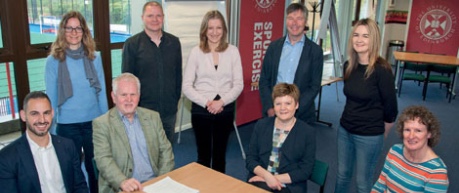Thursday 29th June 2017, 2:00pm
Since its inception meeting in Rome in January 2017, the Supporting Evidence-Based Interventions (SEBI) team at Easter Bush Campus has been working at a pace to set up three programmes of work that meet the project's two core objectives.

The first core objective is to reduce cattle and small ruminant mortality, disease and reproductive losses in Ethiopia, Nigeria and Tanzania.
The second is to strengthen and integrate data systems to prioritise and track outcomes of livestock investments in Bill & Melinda Gates Foundation focus countries.
Under Programe One, SEBI will commission and manage a series of sub-grants that will investigate livestock mortality and production losses in Ethiopia, Nigeria and Tanzania. To date, SEBI has signed a contract with the University of Glasgow to build a surveillance platform in Tanzania that will allow for the development and long-term evaluation of animal health interventions in a sustainable way.
Programme Two will develop and implement a harmonized system of data processing by building an open international modelling community of practice. This programme has led to the establishment of the Livestock Data for Decisions (LD4D) community of practice, who gathered for its first meeting in Edinburgh in June.
Programme Three is focused on the assessment of innovative technology interventions in livestock production for development and transfer to developing countries. In March, SEBI awarded the University of Guelph US$125,000 to carry out field trials to test a portable handheld diagnostic device for cattle disease. The portable sensor allows dairy farmers to rapidly diagnose ketosis and other metabolic diseases in cows by analysing a small volume of blood or milk, and will be adapted for applications that are more suited to developing countries.
SEBI is a 3-year pilot project. If it succeeds, the expectation is that SEBI will expand to become the 'go to' organisation for veterinary technology and livestock improvement evaluation in Africa.
Source: The Roslin Reporter/SEBI